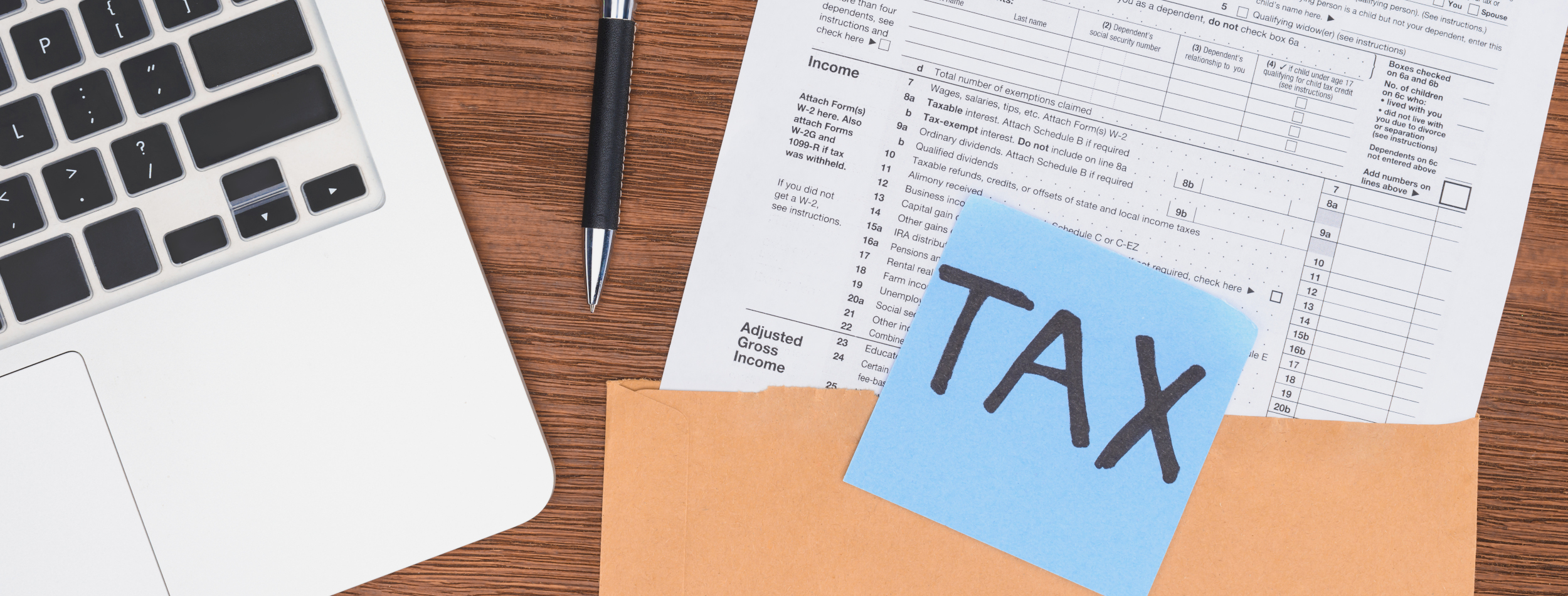

Tax Season is Here – A Few Reminders
Share this
It’s April and the common joke is that death and taxes are the only two certainties in life. For a global company like Zurich, taxes are a big part of our business operations worldwide. We have a team of dedicated professionals who focus solely on our tax compliance and how legislative proposals will impact our business.
Unfortunately, some of the federal and state level proposals discriminate against U.S. subsidiaries supporting the U.S. economy. Our goal at Zurich is to pay our fair and equitable share of taxes, but we should be held to the same standards as a wholly domestic company.
As you work on your taxes, please remember that Congress passed the largest rewrite of the tax code in December 2017. We should all be mindful of how the changes will impact our own taxes, and as a friendly public service announcement, if you haven’t filed yet, this is your friendly reminder.
Last year the Internal Revenue Service (IRS), state tax agencies and the tax industry held National Tax Security Awareness Week from December 3 – 7, to help taxpayers protect their data and identities. You can read their news and tax tips HERE. The following are just a few of those tips:
As cyber criminals change their tactics to target you, always remember that the IRS will never:
- Initiate contact by email to request personal or financial information. This includes any type of electronic communication such as text messages and social media.
- Call to demand immediate payment. Nor will the agency call about taxes owed without first having mailed you a bill.
- Demand that you pay taxes without giving you the opportunity to question or appeal the amount they say you owe.
- Require you to use a specific payment method for taxes such as a prepaid debit card.
- Ask for credit or debit card numbers over the phone.
- Threaten to bring in local police or other law enforcement groups to have you arrested for not paying.
There are also several steps you can take to minimize your chances of becoming a victim of tax refund fraud:
- Always use security software with firewall and anti-virus protections. Make sure the security software is always turned on and can automatically update. Encrypt sensitive files such as tax records that you store on your personal computer. Use strong passwords.
- Learn to recognize and avoid phishing emails, threatening calls and texts from thieves posing as legitimate organizations such as your bank, credit card company and even the IRS. Do not click on links or download attachments from unknown or suspicious emails.
- Protect your personal data. Do not routinely carry your Social Security card, and make sure your tax records are secure. Treat your personal information like you do your cash; don’t leave it lying around.
- File your tax returns as early as you can. Most people find out that they have become a victim when trying to file their return electronically, only to be rejected. If this happens, the IRS advises that you file your return by paper.
How to report tax scams
- Report suspicious online behavior or emails to phishing@irs.gov. Tax phishing scams by phone, fax or mail should be reported by calling 800-366-4484. Additionally, IRS impersonation should be reported to the Treasury Inspector General for Tax Administration at IRS Impersonation Scams Reporting.
By: Gregg Sheiowitz
Assistant Vice President Federal Affairs

Tax Season is Here – A Few Reminders
Share this
It’s April and the common joke is that death and taxes are the only two certainties in life. For a global company like Zurich, taxes are a big part of our business operations worldwide. We have a team of dedicated professionals who focus solely on our tax compliance and how legislative proposals will impact our business.
Unfortunately, some of the federal and state level proposals discriminate against U.S. subsidiaries supporting the U.S. economy. Our goal at Zurich is to pay our fair and equitable share of taxes, but we should be held to the same standards as a wholly domestic company.
As you work on your taxes, please remember that Congress passed the largest rewrite of the tax code in December 2017. We should all be mindful of how the changes will impact our own taxes, and as a friendly public service announcement, if you haven’t filed yet, this is your friendly reminder.
Last year the Internal Revenue Service (IRS), state tax agencies and the tax industry held National Tax Security Awareness Week from December 3 – 7, to help taxpayers protect their data and identities. You can read their news and tax tips HERE. The following are just a few of those tips:
As cyber criminals change their tactics to target you, always remember that the IRS will never:
- Initiate contact by email to request personal or financial information. This includes any type of electronic communication such as text messages and social media.
- Call to demand immediate payment. Nor will the agency call about taxes owed without first having mailed you a bill.
- Demand that you pay taxes without giving you the opportunity to question or appeal the amount they say you owe.
- Require you to use a specific payment method for taxes such as a prepaid debit card.
- Ask for credit or debit card numbers over the phone.
- Threaten to bring in local police or other law enforcement groups to have you arrested for not paying.
There are also several steps you can take to minimize your chances of becoming a victim of tax refund fraud:
- Always use security software with firewall and anti-virus protections. Make sure the security software is always turned on and can automatically update. Encrypt sensitive files such as tax records that you store on your personal computer. Use strong passwords.
- Learn to recognize and avoid phishing emails, threatening calls and texts from thieves posing as legitimate organizations such as your bank, credit card company and even the IRS. Do not click on links or download attachments from unknown or suspicious emails.
- Protect your personal data. Do not routinely carry your Social Security card, and make sure your tax records are secure. Treat your personal information like you do your cash; don’t leave it lying around.
- File your tax returns as early as you can. Most people find out that they have become a victim when trying to file their return electronically, only to be rejected. If this happens, the IRS advises that you file your return by paper.
How to report tax scams
- Report suspicious online behavior or emails to phishing@irs.gov. Tax phishing scams by phone, fax or mail should be reported by calling 800-366-4484. Additionally, IRS impersonation should be reported to the Treasury Inspector General for Tax Administration at IRS Impersonation Scams Reporting.
By: Gregg Sheiowitz
Assistant Vice President Federal Affairs




